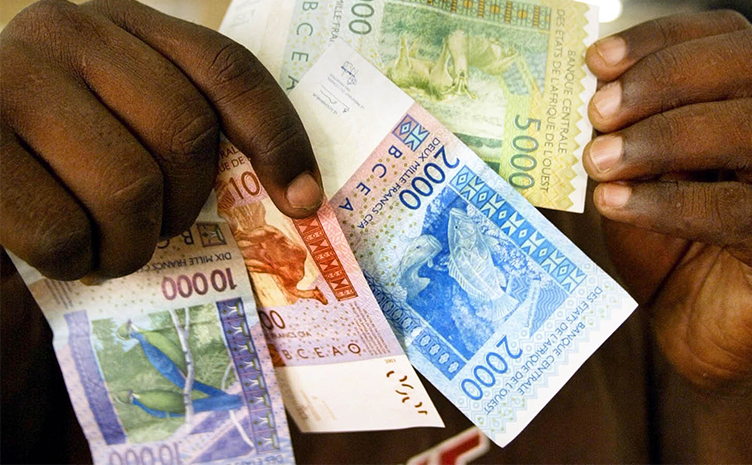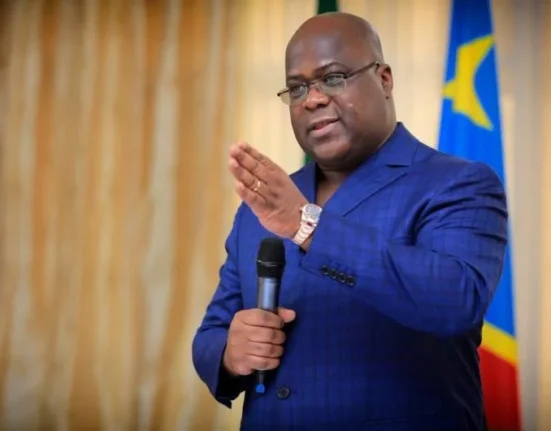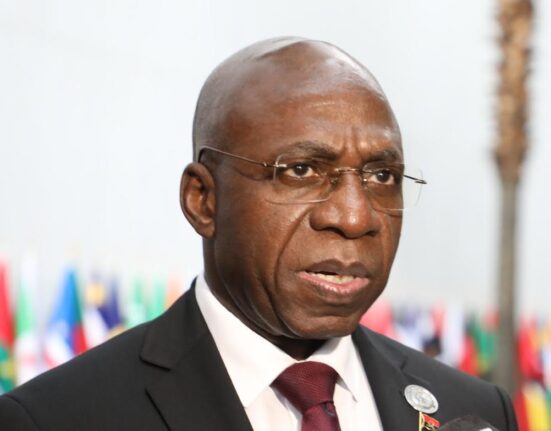By AfricaHeadline – Special Report
For nearly eight decades, 14 African nations have lived under the weight of the CFA franc, a currency system born in the ashes of World War II and still legally tethered to France. Supporters call it a guarantor of stability; critics describe it as one of the last standing monuments of colonialism. A growing chorus of economists, activists, and political leaders argue it is time for Africa to break free.

AfricaHeadline Reports Team
editorial@africaheadline.com
The CFA franc was created in 1945 as France sought to rebuild its shattered post-war economy. Designed to bind its colonies into a single monetary union, the system pegged the currency first to the French franc and, after 1999, to the euro. But behind the veneer of stability lay a mechanism of control: African central banks were required to deposit half of their foreign reserves in the French Treasury, giving Paris an enduring veto over monetary policy.
Today, the CFA franc is still in circulation in two blocs, the West African Economic and Monetary Union and the Central African Economic and Monetary Community. Fourteen independent nations continue to share a currency legally underpinned by French oversight. To many, independence came without sovereignty.
The arrangement has proved remarkably advantageous for Paris. With African reserves parked in French coffers, the Treasury enjoys cheap financing while offering a convertibility guarantee it rarely needs to honor. French businesses gain a captive market with minimal currency risk, and France maintains a lever of political influence powerful enough to freeze government funds in times of political dispute, as seen in Côte d’Ivoire, Mali, and Niger.
For Africa, the benefits are far harder to identify. Inflation has been kept low, but critics argue this “stability” has come at a crushing cost: weak competitiveness, stifled exports, and decades of economic stagnation.
Economists point out that the CFA franc is frequently overvalued, pricing African exports out of global markets. Local banking sectors remain dominated by foreign capital, restricting access to long-term, affordable credit. Development projects are choked by high interest rates and structural dependence on external financing. Data show that several CFA-zone countries have seen little or no increase in per capita income over the past 40 years.
Regional trade, often cited as a rationale for a common currency, is strikingly low. Instead, the system locks countries into reliance on Europe while doing little to encourage integration within Africa.
For many Africans, the CFA franc represents more than economics, it is the most visible symbol of neocolonial control. Legal agreements signed at independence preserved French authority over currency, trade, and even defense. Critics argue that such arrangements violate principles of sovereignty and self-determination enshrined in international law.
The history of Guinea offers a warning. When it abandoned the CFA franc in 1960, France retaliated with economic sabotage, flooding the country with counterfeit notes and destabilizing its economy—a move seen by many as punishment for defiance.
Reform has long been on the table, but proposals, renaming the currency, shifting minting operations, tweaking the peg, are widely seen as cosmetic. More radical ideas, such as adopting digital currencies or building a pan-African monetary union, remain far from reality given the economic diversity of the region.
The most convincing option, according to a new wave of economists influenced by modern monetary theory, is dismantling the CFA system altogether. By reclaiming national currencies and coordinating through regional payment systems and industrial strategies, they argue, African states could regain the tools to finance their own development and chart independent futures.
This debate over the CFA franc is not merely about money. It is about sovereignty, democracy, and the unfinished business of decolonization. France benefits from the system at little cost to itself. African nations, meanwhile, are left navigating austerity policies championed by the IMF and World Bank, illicit capital flight, and the repatriation of corporate profits that drain billions from their economies every year.
Public mobilization is growing. Protests have erupted in Senegal, Burkina Faso, and elsewhere, where young people view the CFA franc as a relic of domination that constrains their futures.
“The CFA franc keeps us in chains,” one activist in Dakar said. “Independence means nothing if we cannot control our own money.”
Reclaiming monetary sovereignty would be politically fraught and economically risky in the short term. But the long-term promise is undeniable: the chance to finance development from within, to reduce dependency on Paris, and to align monetary policy with national priorities rather than foreign interests.
The battle over the CFA franc is, ultimately, a struggle over who gets to decide Africa’s future. For France, the currency has been a quiet but potent instrument of influence. For Africans, it has become a question of dignity, sovereignty, and survival.








